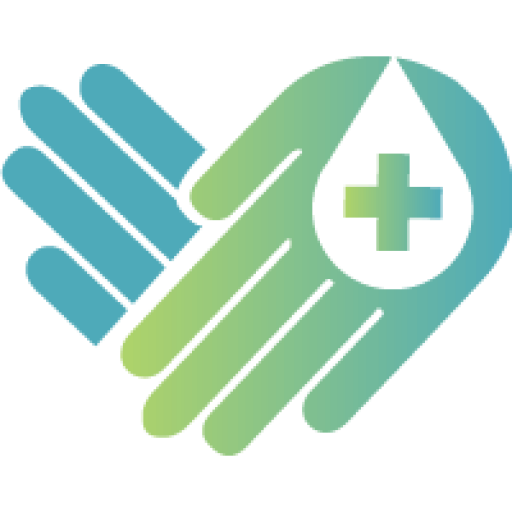Explore Related Nursing Specialties
What It Takes to Be a Pediatric Nurse

Pediatric Nursing at a Glance
What you’ll do: Care for children, from newborns to teens. Depending on where you work, you could provide preventive care or specialty for care for children who are seriously ill or have medical conditions.
Where you’ll work: Hospitals, including dedicated children’s hospitals, outpatient clinics, schools, and more
Degree you’ll need: An Associate Degree in Nursing (ADN), or a Bachelor of Science in Nursing (BSN)
Median annual salary: $86,070
Pediatric nurses work in doctor’s offices, clinics, hospitals, surgical centers and other healthcare settings. Their skills bring a particular comfort to children being treated in acute care departments, such as the neonatal unit, pediatric critical care unit and pediatric oncology ward, and to their parents.
In This Article
Steps to Enter Pediatric Nursing | Job Description | Where You’ll Work | Education | Online Programs | Choosing a School | Licensure | Experience | Certification | Salary and Career Outlook | Professional Resources
How to Become a Pediatric Nurse in 5 Steps
Qualifying to work as a pediatric nurse requires education, training, and licensure. These steps can guide you on your journey.
Determine what education you’ll need.

You can be a pediatric nurse with an associate or bachelor’s degree. While it’s quicker to get an associate degree, you may find more job opportunities with a bachelor’s degree.
Graduate from an accredited program.

A high-quality program will be accredited by either the Accreditation Commission for Education in Nursing (ACEN) or the Commission on Collegiate Nursing Education (CCNE).
Become licensed as a registered nurse (RN).

As you near graduation, you’ll want to register for the NCLEX-RN exam, a national exam that you must pass to qualify for an RN license. These licenses are issued by individual states.
Gain experience in pediatric nursing.

There are many ways to get experience in pediatric nursing, including doing clinical hours in pediatrics as part of your degree or volunteering in the community.
Earn certification as a pediatric nurse.

Take your education further by getting a certification like the Certified Pediatric Nurse (CPN) credential. Certification demonstrates knowledge and expertise and shows your commitment to a field or specialty.
What Is a Pediatric Nurse and What Do They Do?
Pediatric nurses work with patients who haven’t reached adulthood—from newborns to teenagers. While it can be rewarding to work with this age group, it can require extra patience and understanding since children can view healthcare situations as intimidating.
“The greatest part about being in pediatric nursing is that it becomes more than just a job—kids depend on your compassion to get through the ‘scary things,’ and you need finesse to play by their rules to get the job done,” said Christian Leon, RN, BSN, who works as a pediatric nurse at a children’s hospital in Utah. “Children bounce back so quickly and it is the most rewarding part of my day to see a kid leave with a smile on their face.”
Pediatric nurses do more than care for their patients. They often play a crucial role in ensuring that children have a positive healthcare experience.
Depending on where they work, pediatric nurses can have a wide variety of responsibilities. Some of their most common duties include:
Skills and Traits of a Successful Pediatric Nurse
These skills and traits can help you shine in this field.
Communication: Pediatric nurses need to communicate with patients in a way that makes them feel safe. They also need to have effective communication skills to discuss the concerns of parents.
Creativity: Sometimes pediatric nurses need to be creative to engage with their patients, especially younger ones. “Hospitals can sometimes be boring, so being creative (in addressing) their specific needs can go a long way,” says Leon. “One time I played a game of Uno with a patient to gain their trust; then they let me do vital signs and a physical assessment.”
Time Management: Nurses need to be able to juggle patient care and administrative tasks to work efficiently. This can be especially true for pediatric nurses. “Kids play by their own rules, so you need to be able to manage time well for whatever they throw at you,” says Leon.
Problem Solving: Pediatric nurses will often need to identify health problems and then start care. Excellent problem-solving skills can help you succeed and add to patient safety.
Compassion: A big dose of compassion is sometimes the best care a pediatric nurse can provide. “To kids, this could very well be the scariest thing they have had to deal with,” says Leon. Being able to sympathize with what a patient is experiencing will help the visit go more smoothly.
Where Pediatric Nurses Work
Pediatric nurses can work in a variety of settings, and duties can vary from workplace to workplace. Some of these places:
Pediatric Nurse Education Requirements
There are two paths for formal education to become a nurse: an Associate Degree in Nursing (ADN) or a Bachelor of Science in Nursing (BSN). While you can start your pediatric nursing career sooner with an associate degree, some employers require nursing candidates to have a bachelor’s degree.
It may be worthwhile to take the time to earn a bachelor’s degree to open more job opportunities.
Associate Degree in Nursing
Bachelor of Science in Nursing
Online Pediatric Nursing Programs
There are hybrid nursing programs available. Some offer coursework online, which makes it convenient for students who can’t attend on-campus classes and need flexibility. Clinical rotations will still need to be completed in person under the supervision of an experienced nurse who can ensure that tasks and procedures are being performed properly.
However, if you’re already a registered nurse (RN) with clinical experience and want to earn a bachelor’s degree, you might find some programs that are entirely online.
What to Look for in a Pediatric Nursing School
Here are a few factors to consider when choosing a school:
Licensure for Pediatric Nursing
It’s not enough to simply get a degree in nursing. Students must also obtain a license before they can practice. To be licensed, all prospective nurses must pass the National Council Licensure Examination for RNs (NCLEX-RN).
The NCLEX-RN is a computerized test that’s tailored to each student by basing questions on the test taker’s answer to the previous question. The test personalizes how many questions you’ll answer based on your performance, with a range of 74-145 questions.
You’ll have up to five hours to answer questions, which will focus on:
It’s not enough to simply get a degree in nursing. Students must also obtain a license before they can practice.
Your degree program will most likely provide you with resources to prepare for the NCLEX-RN, so be sure to check for study materials.
Once you have passed the NCLEX-RN, you can apply to your state nursing board for a license. State requirements vary, but you may need to provide fingerprints or undergo a background check.
Gain Experience
With your nursing license in hand, you can start looking for positions as a pediatric nurse. You may be able to use any pediatric clinical rotations you completed in college to show you’re qualified to work with children.
Once you gain professional experience, you can qualify to earn a certification as a pediatric nurse.
Pediatric Nursing Certifications
Earning a pediatric certification has several benefits:
“Certification is valuable in terms of demonstrating knowledge,” says Leon. “It does help during the interview process and gives you priority over other applicants.”
Here are three common certifications for pediatric nurses.
Certified Pediatric Nurse (CPN)
Pediatric Nursing Certification (PED-BC)
Critical Care Registered Nurse Pediatric (CCRN)
Subspecialty Certifications for Pediatric Nurses
Some pediatric nurses specialize even further out of personal interest or for more job opportunities. Some of the most popular subspecialty certifications include:
Pediatric Nurse Salary and Career Outlook
Registered nurses earn a median annual salary of $86,070, according to the U.S. Bureau of Labor Statistics. The BLS doesn’t break out nursing specialties but earning a bachelor’s degree and a specialty certification may lead to a higher salary.
Take a look at registered nurse salaries by state and by earnings percentile:
Top-Paying Metropolitan Areas for Nurses
California takes all 10 spots for the highest-paying metro areas for nurses. A combination of a high cost of living, a strong nursing union, and a minimum nurse-to-patient ratio have led to high salaries for nurses in the state, according to BLS data.
Metropolitan Areas with the Most Nurses
Nurses are in demand nationwide, but some metro areas and states employ more nurses, partly because of the size of their populations.
Job Outlook
The number of jobs for RNs is expected to grow by 5.6% through 2032 due to an aging population with more healthcare needs, according to the BLS.
While overall job prospects are good, the BLS says RNs with a BSN degree and certifications may have a better chance of landing sought-after positions.
Expected Job Growth for RNs through 2032
Professional Resources
Joining or following a professional organization can help pediatric nurses learn about trends in their field and stay on top of the latest medical research.
Some resources pediatric nurses may want to consider following include:


